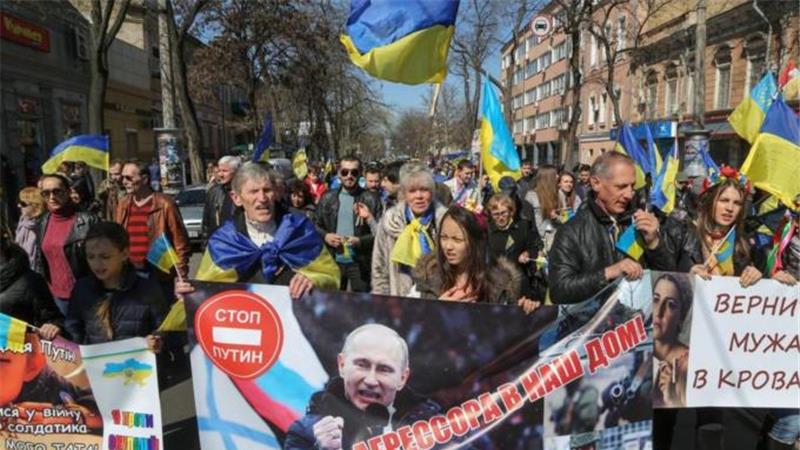
By issuing ultimatums and then failing to follow up, Kiev has further emboldened the rabble-rousers.
A city mayor is placed under house arrest and held incommunicado, a local and then a foreign journalist get kidnapped, and three bodies are pulled out of a river, one of them apparently belonging to the president’s political party. Meanwhile, just across the border, less than 100km to the east, looms a 40,000-strong Russian army, ready to pounce at a moment’s notice.
This is the reality of life in Ukraine’s eastern provinces, where cities and towns have been taken hostage by mysterious bands of pro-Russian “people’s defenders”. Many of these “defenders” appear to be well-armed, wear a green camouflage and balaclavas (earning them the moniker “green men”) and have an unmistakable Russian accent. Just as unmistakable is the resemblance of the scenario being played out in eastern Ukraine to that in Crimea on the eve of the Russian invasion: As in Crimea, Moscow has strenuously denied any involvement in eastern Ukraine, despite mounting evidence to the contrary.
With their calls for Russian President Vladimir Putin to send tanks to “defend” the people from the “fascist” government in Kiev, the pro-Russia protesters do not seem to represent the majority of the population in the east, which, though not enthusiastically pro-Kiev, would be content to be allowed to use Russian at work and to have their children taught in the language, to enjoy an increased regional autonomy, and simply to live in peace. Yet, despite their obvious minority status, the pro-Russian thugs have been able to take advantage of the power vacuum, relying on the apparently Moscow-supplied weaponry and logistical support to keep whole cities in terror and to have brought the entire region to the precipice of a civil war.
A student of Political Economy 101 might recognise the developments in Ukraine’s east as following the logic of “concentrated benefits and diffuse costs”, whereby a particular group will pull out all stops to achieve its goals, while the majority is too apathetic to take action to counter the active minority because it does not necessarily perceive the outcome as detrimental to its well-being. So, while the majority would prefer to continue carrying Ukrainian passports, they are too disenchanted, after two decades of lawlessness, corruption, kleptocracy by the few and the attendant impoverishment of the many, to make a stand for Ukraine’s statehood.
Pro-Moscow agitators
In contrast, the pro-Moscow agitators are well-coordinated, well-compensated and within reach of the miraculous promise of spoils to be had in a new power configuration, just as it currently seems to be happening in Crimea. Eastern Ukrainian oligarchs, meanwhile, like the country’s richest man Rinat Akhmetov, are biding their time and wetting their finger to see which way the wind blows before casting their lot with either side.
By all accounts, the group that stands to gain the most should Russia invade eastern Ukraine are the disgraced former President Viktor Yanukovich, his son and their acolytes, who are too unpopular to return from their reported hiding place in Moscow on their own and to re-establish power at least on a regional level. They are therefore hoping they could ride Russian tanks to reclaim their fiefdom, whether it be a de jure independent “Donetsk People’s Republic” and a de facto Russian protectorate, or a Russian province outright. Yanukovich’s latest statement lends credence to suspicions that he and his posse have underwritten at least some of the recent unrest: In it, he insists on Ukraine’s federalisation and dialogue with the east’s “people’s leaders” as the only way to keep Ukraine from disintegrating.
Therefore, the government in Kiev is facing an impossible, damned-if-you-do, damned-if-you-don’t dilemma, having already offered its restless eastern provinces all of the concessions it could, including a maximum of autonomy and a pledge to keep Russian on the books as the second official language.
Now that the insurgents have refused to budge and vacate the occupied administrative buildings, Kiev must show strength and enforce its writ by all means necessary, which would risk a bloody escalation and Russia’s threatened invasion under the pretext of defending its Russian-speaking brethren. By issuing ultimatums and then failing to follow up, Kiev has further emboldened the rabble-rousers. Indeed, the central government’s reluctance (or inability) to restore order in the east may have already forced the insurgents’ and their Moscow benefectors’ hand: Official Kiev has claimed that the two bodies which were pulled from a river near the town of Slovyansk and blamed by the city’s self-appointed pro-Russian mayor on the Ukrainian nationalist “Red Sector” movement, were a provocation designed to ratchet up the pressure for Russia’s military intervention.
The West’s influence on the course of events in eastern Ukraine is limited, as it will not intervene militarily, avoiding direct confrontation with Russia’s army. Apart from solidarity gestures, such as US Vice President Joe Biden’s visit to Kiev on Tuesday, financial aid to allow the government in Kiev to reform Ukraine’s defunct economy and to solidify its hold on the territory it does control and a threat of further sanctions, Washington and Brussels are passive observers of the growing cancer in eastern Ukraine. Furthermore, US and European publics simply do not feel there is as much at stake for them in Ukraine. Putin’s government, in contrast, appears to have staked much of its prestige and credibility with its own population on the outcome in Ukraine and will continue to act as a spoiler there indefinitely.
Indeed, with its antecedents in Moldova’s Transnistria and Georgia’s breakaway territories of Abkhazia and South Ossetia, all of which remain under Russian control, Ukraine is the most important piece in Moscow’s emerging “New Russia” policy, publicly articulated by Putin recently. Although technically referring to Ukraine’s southern and eastern provinces, which Putin apparently considers to be historically Russian, this policy is part of the larger stated objective of defending Russian speakers everywhere. This new doctrine has implications far beyond Ukraine’s borders and may eventually encompass areas throughout the former USSR with a large ethnic Russian presence. To name just a few: The predominantly Russian-speaking northern Kazakhstan and the Baltic states of Estonia, Latvia and Lithuania, all with large ethnic Russian communities.
The world in suspense
Putin’s course of action in Ukraine remains clear only to himself (if that) and it is hard not to assume that he enjoys keeping the whole world in suspense and on edge. At the very least, the continuing unrest in eastern Ukraine is a way for Moscow to have a say-so in Ukraine’s May 25 presidential election, to achieve its goal of Ukraine’s federalisation (and de facto partition) and to prevent Ukraine from drifting further into the Western orbit and joining NATO.
But while Putin’s next move is not clear, his message is: This is not really about Ukraine, which Putin and Co have never recognised as a fully-fledged independent state anyway. Rather, this is about Russia and its return on the world stage to reclaim at least some of its past Soviet glory, to resume playing a major role in world’s affairs and to refuse to be pushed around, ignored and dismissed.
The wave of patriotic jingoism which Putin rode all the way to the warm waters of Crimea is, indeed, unprecedented in Russia’s post-Soviet history. A reincarnation of the Soviet empire this newly resurgent and belligerent Russia is not, though, deprived as it is of of the Leninist ideology which dictated the necessity of worldwide class struggle. Furthermore, Russia is systemically corrupt, dependent on the high price of oil to keep its populace acquiescent and to bankroll adventures like Crimea, and bleeding hard currency as its businessmen large and small continue to stash away their wealth in foreign offshore accounts. Its citizenry’s support is as strong as the government’s ability to pay its bills and to keep the media firmly muzzled. The Western sanctions, which have been modest so far, may yet take a serious bite out of Russian economy should Putin decide to move his tanks across Ukraine’s eastern border.
And yet, having unleashed the beast of 19th century-style politics of territorial expansion in the service of a unifying national narrative, Putin’s very survival depends on his ability to continue to feed it. Whether keeping this beast happy will involve gobbling up eastern Ukraine in the near future may not matter as much, considering that a dangerous precedent has already been set with Crimea, threatening to unravel the very fabric of the post-World War II order of international relations. And while the Kremlin likes to point to the US’ own adventures in Afghanistan, Iraq, Libya and Syria as having set that very precedent, they did not involve annexation of a sovereign country’s territory.
Russia may one day rue its Crimea adventure when, say, in 20 years, Beijing decides to send tanks across the border to Russia’s far east, ostensibly to protect its Mandarin-speaking guest labourers there, who by then may number in the millions.
Peter Zalmayev is director of the Eurasia Democracy Initiative (EDI), an international non-profit organisation dedicated to the promotion of democracy and rule of law in post-Communist transitional societies of Eastern and Central Europe, the Caucasus and Central Asia.
Origin – aljazeera.com

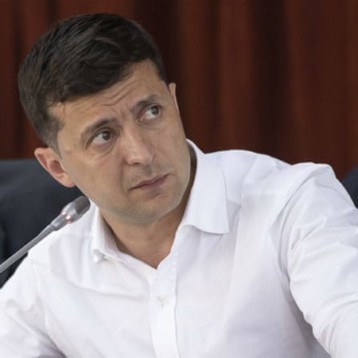
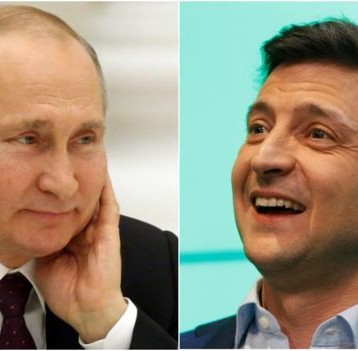
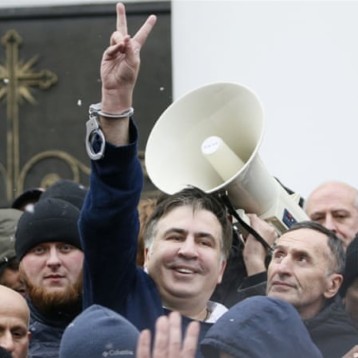
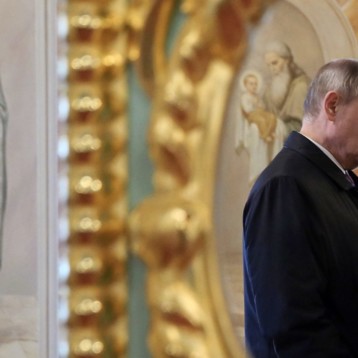
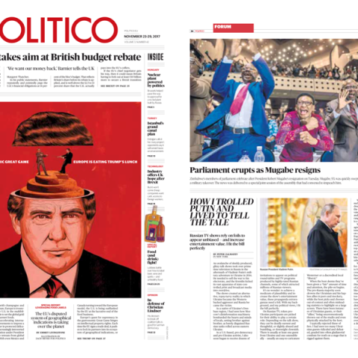
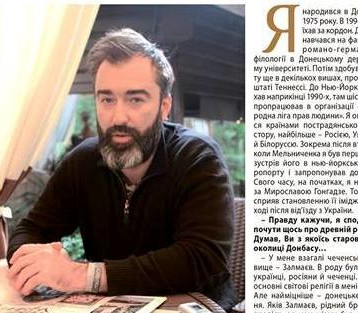
You must be logged in to post a comment.